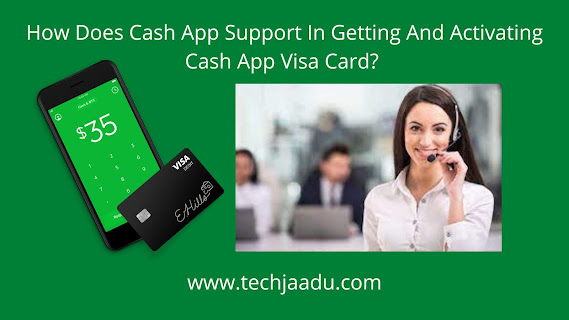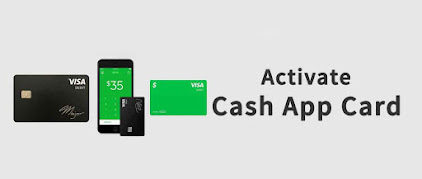How to Handle Cash App Chargebacks & Disputes: A Merchant Guide
As a business owner who uses Cash App, a peer-to-peer payment service, it’s important to know the ins and outs of the Cash App dispute process to protect your business from illegitimate chargebacks. Cash App has become a fundamental financial tool for more than 44 million monthly users across the US and UK since 2013. But despite Cash App’s increased popularity and convenience for merchants, the threat of chargebacks is still a great deal of risk for a business that is accepting payments.
In this guide, we’ll
explore Cash App chargebacks, how they work for both consumers and
merchants, and tips on how to avoid them altogether. Let’s get started!
How Does Cash App Work?
As its name
suggests, Cash App is an app-focused platform making it easy for consumers and
merchants to send and receive money. As a peer-to-peer money transfer app, Cash
App requires users to set up an account and link a debit or credit card to
begin. Once a user finishes setting up their Cash App account, sending money to
friends, family, and businesses is simple. However, whoever is receiving the
funds must also have Cash App. Money received will enter the user’s Cash App
balance, which the user can then transfer into their account holder’s bank
account.
For merchants, make
sure your Cash App account is a “business account.” It’s easy to convert a
personal Cash App account to a business account by heading to the “Edit
Profile” tab within the app. Once you set up a business account, you can accept
payments from customers via payment links and QR codes.
Can You Charge Back on Cash App?
Cash App has an
in-house dispute process that begins after a payment finalizes. Unlike
traditional payment processing platforms such as merchant accounts,
chargebacks on Cash App depend on the payment method. Chargebacks are only
relevant to payments transacted on credit or debit cards through the app, so
bank transfers and transfers from Cash App balances are not eligible.
The Cash App Chargeback Dispute Process
As a merchant using
Cash App as a payment option, it’s useful to be aware of their chargeback
process. The Cash App dispute process is very similar to the normal chargeback
process regarding its operations, but the main difference is that as a
merchant, you won’t pay those hefty chargeback fees each time one comes
through. Cash App encourages its users to contact merchants to resolve refunds or
other disputes before lodging an official dispute. If the merchant and Cash App
user cannot agree, the user can then file a dispute, and Cash App will contact
the merchant for further clarification. After collecting evidence from both
parties and assessing the relevant details, Cash App will decide whether or not
to refund the customer.
How Does a Cash App Chargeback Affect Merchants?
Overall, the lack of
official chargebacks within the Cash App platform provides a range of benefits
to merchants. With a traditional merchant account, you see an increase in
your chargeback ratio if a customer disputes a transaction. With Cash
App, there is no chargeback ratio related to your account however, this does
not mean you are safe from any consequences of a large number of chargebacks.
If Cash App deems your business fraudulent or too high-risk, they may ban you
from using their platform without any notice.
Additionally, the
dispute process with Cash App will not come at a significant cost to you as
there are no chargeback fees on Cash App. However, please understand
that Cash App disputes do take some time. You’ll need to present evidence
regarding the transaction’s legitimacy to further plead your case, making the
dispute process a timely endeavor.
While Cash App’s
likelihood of placing your business on the Terminated Merchant File (TMF) list
isn’t clear, this may happen in the case of severe fraud. Being on the TMF list
can significantly impact your access to payment processing so be sure to handle
chargebacks promptly if and when they come through.
How to Manage Cash App Fraud
As with all payment
platforms, Cash App is targeted by fraudsters. For consumers, this may come in
the form of promises of goods or services that never arrive, or by hacking
accounts and transferring money to other parties. In 2021, bank transfer or
payment fraud in the United States totaled more than 750 million dollars.
On the other hand,
merchants must deal with individuals filing false disputes. “friendly fraud,”
which is one of the leading forms of chargeback fraud, continues to increase in
the United States — recent evidence suggests that up to 80% of merchants have
experienced an increase in friendly fraud in recent years.
If you want to avoid
this type of fraud, it’s critical to collect as much information as possible
regarding the transaction. For example, keep records of customer addresses,
names, shipping tracking numbers, and other core details about your business to
verify a transaction. Unfortunately, with this process you won’t have the same
access to authorization holds for preventing chargebacks as you would
with a traditional merchant account. Therefore, if Cash App contacts your
business due to a payment dispute, make sure to provide clear evidence refuting
the claim if you believe it’s fraudulent.
Is Cash App Right for Your Business?
When it comes
to accepting online payments, offering convenience to your customers can
considerably increase your revenue. This is why many businesses have added Cash
App to their payment options, making the process easy and secure. Since CashApp only supports payments from other Cash App accounts, it cannot be the sole
source of processing for your business. Thus, on top of using Cash App, you’ll
need to implement another online payment solution if you want to
accept major credit and debit cards.
Final Thoughts on Cash App Disputes
While Cash App
reduces your exposure to traditional chargebacks, it’s still beneficial to
understand the process for when they do arise. Chargeback disputes can severely
damage your business’s reputation and cost you hundreds in account fees.
Therefore, good business practices such as writing clear return policies,
having reliable shipping partners, and providing accurate product descriptions
are critical if you want to avoid chargebacks in the future. For businesses
that are ready for an established payment service or simply looking for better
chargeback prevention tools, consider a merchant account. When you sign up for
a merchant account with us, you’ll receive effective chargeback management strategies
that can truly save your business.



Comments
Post a Comment